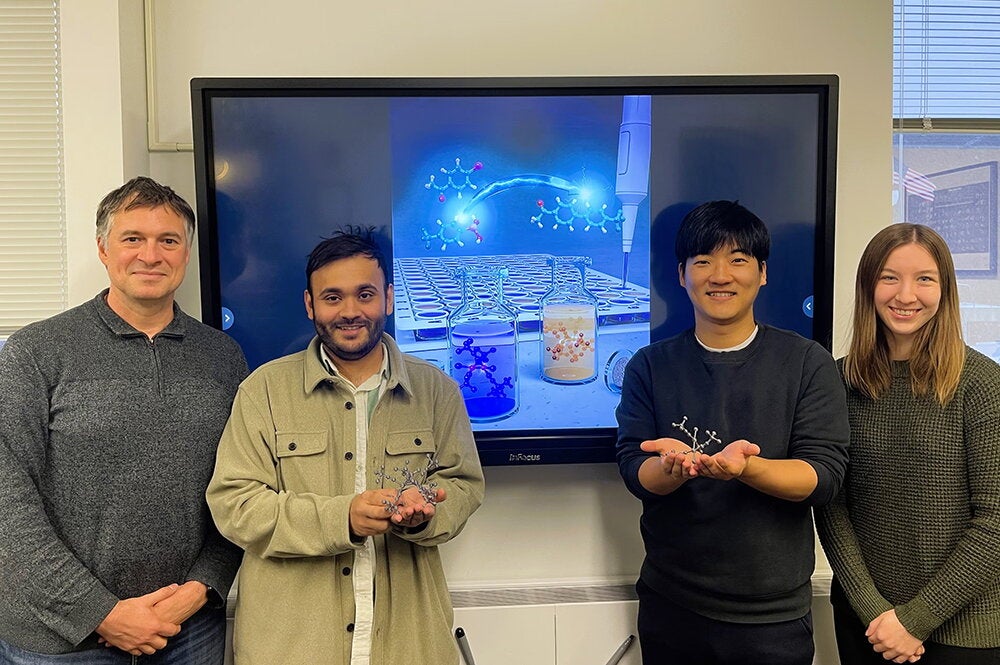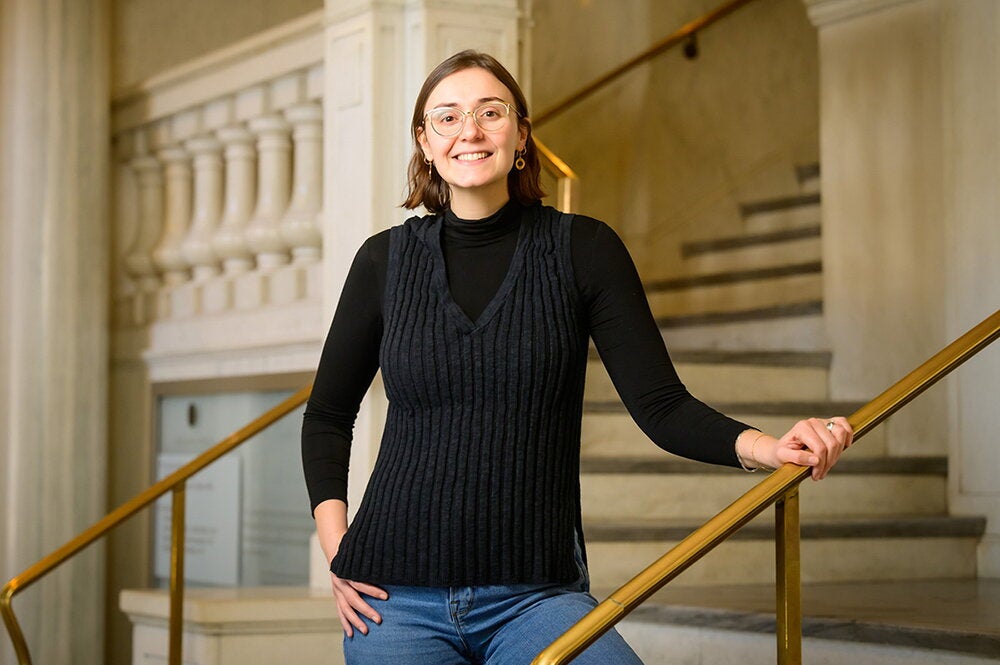

Several researchers in the College of LAS have received funding for projects as part of the U of I’s Call to Action Research Program to Address Racism and Social Injustice. They’re the inaugural recipients of the program, which represents a $2 million annual commitment by the university to prioritize research focused on systemic racial inequities and injustices, as well as the expansion of community-based knowledge that advances the understanding of systemic racism and generationally embedded racial disparity.
Chancellor Robert Jones announced the program in July 2020. The inaugural call for proposals called for research in the areas of systemic racism and social justice, law enforcement and criminal justice reform, and disparities in health and health care.
“We’re thrilled that so many of these inaugural projects are being led by our faculty members,” said Isabel Molina-Guzmán, associate dean for diversity and inclusion in the College of LAS. “The liberal arts and sciences offer key perspectives to creating solutions and deeper ways of thinking about racism and social injustice, and we’re proud that so many faculty members have responded to the chancellor’s call.”
In all, nine projects include faculty researchers from the College of LAS. Descriptions in the researchers’ own words follow:
Indigenous Languages on the Move Collective: Migrants rights and Llanguage justice in the Champaign area ($25,000)
Project Leaders: Korinta Maldonado, anthropology and American Indian studies; Susana Simon, Pixan Konob’ (community collaborator); Mateo Sebastian, Pixan Konob’ (community collaborator); Ana Lucas, Pixan Konob’ (community collaborator).
Description: “The proposal formalizes an emergent and loosely organized collective developed over the past five years called the Indigenous (Mayan) Languages on the Move Collaborative Language Justice Collective, which is housed in the Native American and Indigenous Language Lab in the American Indian Studies Program. Community and community engaged scholars comprise the collective, and we collaborate with Maya and other Latinx Indigenous community members invested in documenting, analyzing, and fostering processes integral to language justice and language activism.
“The collective takes the position that any collaborative intervention involving language justice requires a critical perspective on multilingualism in which Indigenous languages and their respective cultures are viewed as community assets. This project aims to create a safe space for Indigenous languages to be spoken and their communities of speakers to be valued and heard at a moment of vast migrant precarity and the deep processes of racialization. We critically practice 'acompañamiento': we engage in decolonial, ultimately anti-racist practices of walking alongside the local Pixan Konob’ Q’anjob’al Interpreting and Language Justice collective through local, national, and transnational partnerships.”
Diaspora and Border Racial Justice Youth Project ($24,790)
Project Leaders: Krystal Smalls, anthropology and linguistics; Korinta Maldonado, anthropology and American Indian studies; Mariela Agrawal, Urbana High School (community collaborator); Dawn Navejas, Urbana High School (community collaborator)
Description: “Invested in an unabiding critique of white supremacy and anti-blackness as cornerstones of colonialism, our project (the Diaspora and Border Racial Justice Youth Project) uses a politics and framework of 'thick solidarity,' 'radical reciprocity' (from multiracial Indigenous scholars), and “freedom dreams” to implement a compound Freirian critical pedagogy that sees collaborative learning as a possible tool for justice and liberation. Organized around a multimodal storytelling project that emphasizes students’ 'funds of knowledge,' this proposed program facilitates conversations about and reflections on racism, racialized identities, and social justice in the complex context of overlapping colonialities. We see the acts of convening, telling, and listening as ways to collectively advance a critical understanding of racisms, resistance, and refusal.”
Combating anti-Asian racism ($74,994)
Project Leaders: Soo Ah Kwon, Asian American studies; Susan Koshy, Asian American studies and Unit for Criticism and Interpretive Theory; Junaid Rana, Asian American Studies
Description: “The Department of Asian American Studies in collaboration with the Unit for Criticism and Interpretive Theory proposes a year-long public speaker series and symposium to address the problem of anti-Asian racism. These events aim to combat the lack of awareness and understanding of historical and contemporary forms of anti-Asian racism, and to develop new frameworks for understanding present day racial justice struggles. Drawing on the new public openness to addressing anti-Asian racism, and the galvanization of Asian American communities in the face of racial violence, the proposed events mobilize a range of testimony, dialogue, artistic expression, activism, and scholarship, to examine the distinctiveness of anti-Asian racism, to build cross-racial coalitions, and to expand knowledge of contemporary racial politics. We conceive of this issue as broadly constructed to include the range of Asian American communities that have been historically and currently racialized. The series will culminate in a year end conference, papers from which will be published in an edited volume.”
Implementation and Sustainability of the Ambitions and Stories of young People Inspiring Resilience and Excellence (ASPIRE) Program ($100,000)
Project Leaders: Carla Hunter, psychology; Shardé Smith, human development and family studies; Tracy Dace, DREAAM-Driven to Reach Excellence in Academic Achievement; Shandra Summervile, Champaign County Mental Health Board and Champaign County Developmental Disabilities Board
Description: “This assessment project will evaluate the ASPIRE program, which aims to promote the racial identities, social connectedness, health, and educational achievements of middle-school-aged Black boys and girls by using storytelling activities. Guided by the Evaluation Guide for Culturally Specific Youth Development Program, we aim to identify strengths and areas for improvement of the ASPIRE program, refine the program based on pilot data and feedback from community stakeholders, and implement ASPIRE and collect additional evaluation data.”
Online certificate programs for community health workers: From overlooked and under‑researched employees to well‑equipped frontline agents in the fight to reduce health disparities in communities of color ($100,000)
Project Leaders: Andiara Schwingel, kinesiology and community health; Wandy Hernandez-Gordon, external organization (community collaborator); Susan Aguinaga, kinesiology and community health; Ruby Mendenhall, sociology and African American studies; Leticia Boughton Prince, external organization (community collaborator); Jennifer McCaffrey, Illinois Extension; Brandi Barnes, Interdisciplinary Health Sciences Institute (Office of the Vice Chancellor for Research & Innovation)
Description: “Community Health Workers (CHWs) have shown to effectively serve as liaisons between health and social services and the community, and assist in outreach, community education, informal counseling, social support and advocacy – despite their limited formal health training. COVID-19, in addition to the many other health issues these communities experience, underscores the importance of culturally and linguistically sensitive approaches to health across the life course. CHWs are well positioned to make a difference in the fight to reduce health disparities, and this project offers an opportunity to better equip them for this critical role. Using a community-based participatory research approach, we plan to establish a much-needed coalition that includes CHWs, Illinois researchers, University of Illinois Extension, and the Illinois Community Health Workers Association to develop, evaluate, and disseminate online learning strategies through certificate programs that will train CHWs to address their community health needs.”
Partnerships for Equity, Access, and Representation in STEM ($99,494)
Project Leaders: Eva Pomerantz, psychology; Lara Hebert, Undergraduate Programs Office (Grainger College of Engineering); Beth Hand, Urbana Neighborhood Connections Center; Janice Mitchell, Urbana Neighborhood Connections Center; Tracy Dace, DREAAM-Driven to Reach Excellence in Academic Achievement
Description: “The proposed Societal Impact project, Partnerships in Equity, Access, and Representations in STEM (PEAR-STEM), is a collaboration of Champaign-Urbana community organizations and initiatives, the Chicago Pre-College Science and Engineering Program, and University of Illinois psychology, engineering, and education faculty as well as specialists in public engagement and science, technology, engineering, and mathematics teaching and learning. The overarching goal is to address inequities in preparation for STEM careers among K-12 students, with efforts to identify how to optimize preparation among Black and Latinx students.”
Racial equity and justice in the state courts during the post-pandemic transition ($100,000)
Project Leaders: Jason Mazzone, College of Law; Brian Gaines, political science; Robin Fretwell Wilson, College of Law and Institute of Government and Public Affairs
Description: “Although professionals had debated the merits of virtual courtrooms for years, no court made significant use of online proceedings until almost all courts were forced to do so, abruptly, in March 2020 as a response to the COVID-19 pandemic. As a result, courts have operated during the pandemic under a patchwork of make-shift technologies and procedures that were not designed for legal proceedings and without any data on how racial equity among court users might be affected. States courts are now transitioning from temporary, emergency procedures to long-term approaches that will define the operations of the legal system for decades to come. Without the input of social scientists, stakeholders, and members of affected communities, courts risk making permanent online hearings and other procedures that fail to account for—and worse, exacerbate—systemic racism. This project will provide courts with some of the tools they need to implement practices that promote racial equity in their post-pandemic operations.”
Blueprint for transitional justice in the U.S.: Building on lessons and insights from global perspectives ($95,000)
Project Leaders: Colleen Murphy, Illinois Global Institute and College of Law; Flavia Andrade, social work and Women & Gender in Global Perspectives Program; Jerry Davila, history and Illinois Global Institute; Teresa Barnes, history, gender and women’s studies, and Center for African Studies; Allan Boesak, community member; Elna Boesak, community member.
Description: “Combatting racism and social injustice requires that the U.S. pursue transitional justice, which is the process of facing systemic wrongdoing, past and present, in order to transform the relationships among citizens and between citizens and the state. Over 40 countries have pursued transitional justice to address histories of violence, state impunity, authoritarianism and racism. Transitional justice processes seek truth, justice, reparations, reform, and guarantees of non-recurrence. Our project will map and adapt international experiences with transitional justice as a foundation for a framework to redress the U.S. history of racial and gender-based injustice. This multidisciplinary project responds to the theme of systemic racism and social justice within the societal impact track of the call to action.”
Holding Police Accountable for Systemic Racial Injustice: The Illinois SPOTLITE System – $98,477
Project Leaders: Scott Althaus, political science and Cline Center for Advanced Social Research; Michael Schlosser, Police Training Institute; Jennifer Robbennolt, College of Law; Jay Jennings, Cline Center for Advanced Social Research
Description: “What is measured, matters. Illinois law requires policing agencies to report each use of lethal force, to measure racial disparities in these incidents, and to report this information to the public. But this has not happened. The Illinois SPOTLITE system will fill this gap by creating accurate, comprehensive, and accessible data about lethal force incidents in Illinois from 2014 to the present. This data will empower communities, enhance accountability, identify agencies most in need of reform, and facilitate rigorous evaluation of reform efforts.”


